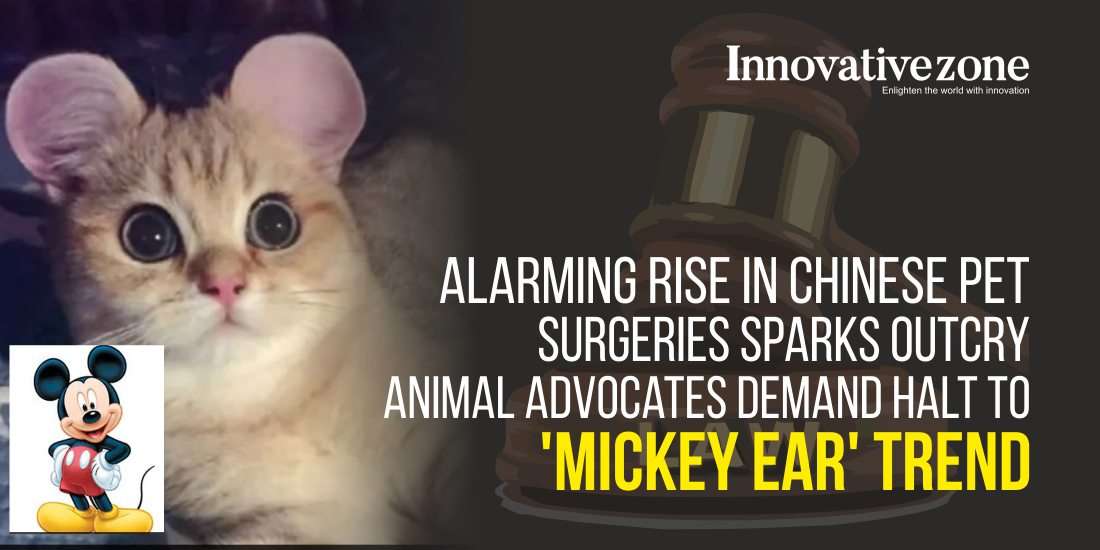Alarming Rise in Chinese Pet Surgeries Sparks Outcry: Animal Advocates Demand Halt To ‘Mickey Ear’ Trend
Written by Sanjay Kumar
News Highlights
- China’s Pet “Mickey Ear” Surge Sparks Outcry.
- Controversial Cosmetic Trend Ignites Ethical Concerns.
- Veterinarians Urge Halt to Distressing Pet Surgeries.
In a troubling turn of events, a surge in popularity of “Mickey Mouse ear” surgeries for pets in China has ignited outrage among animal advocates, prompting urgent calls to halt the controversial trend. This cosmetic procedure, characterized by the trimming and shaping of animals’ ears to resemble Disney’s iconic character, is causing both physical pain and psychological distress to innocent pets.
China
Country in East Asia
- Capital: Beijing
- Population: 141.24 crores (2021) World Bank
- President: Xi Jinping
- Gross domestic product: 17.73 lakh crores USD (2021) World Bank
- Official language: Mandarin
- Provinces: Guangdong Province, Hainan, Zhejiang, Fujian
The trend gained momentum through a clinic offering group discounts, with one advertisement in the Beibei district of Chongqing attracting significant attention. The promotion, featuring a special offer of 300 yuan (US$40) for the procedure to be performed by the Chinese Spring Festival, has further intensified ethical concerns.
Experts warn that the surgery is a two-part process, involving an anesthesia-heavy operation lasting half an hour to shape the ears, followed by a prolonged period of 20-60 days for frequent adjustments. This extended and agonizing process, far from being a playful makeover, has raised serious questions about the welfare of animals subjected to such procedures.
Liu Yundong, a dean at Loving Care International Pet Medical Centre in Beijing, emphasized that while the surgery is rarely performed in pet hospitals in tier-one cities, it remains common in dog kennels and breeding facilities. Notably, there are currently no legal restrictions on this surgery in China, leaving the matter in the realm of moral considerations.
“As veterinarians, we adhere to the principle of animal welfare and do not advocate these surgeries. The colleagues I’ve encountered are tacitly opposed to such surgeries,” stated Liu, highlighting the moral dilemma surrounding the practice.
Activists are now condemning the surgery’s impact on pets, pointing out the lasting scars of trauma and potential anesthetic nightmares. The commodification of animal welfare, as indicated by the clinic’s mention of a “factory’s” production schedule, serves as a stark reminder of the urgent need for stronger legal protections to ensure the well-being of our beloved furry companions. As concerns grow, advocates are demanding immediate action to put an end to this distressing and harmful trend.









